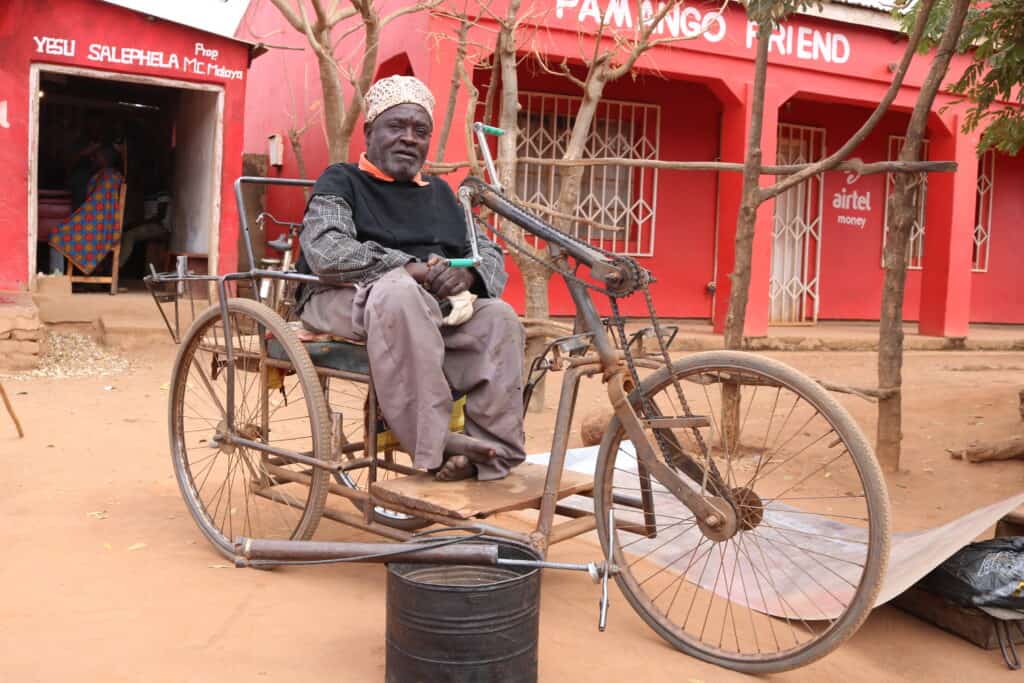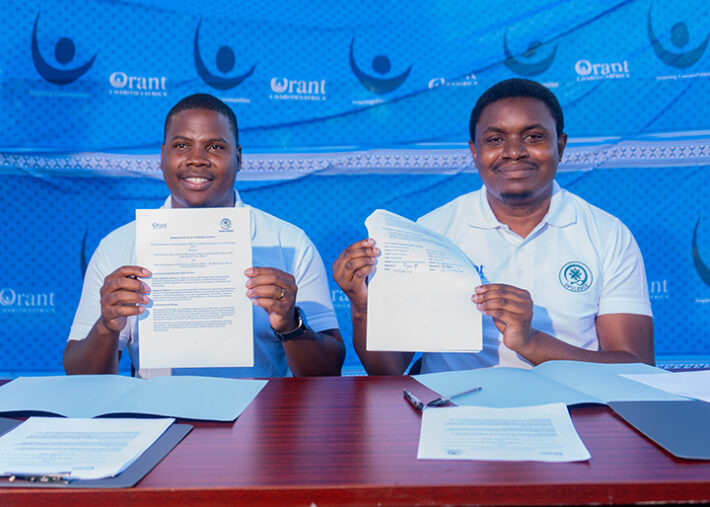Microloans for Malawians on the Margins

Microloans for Malawians on the Margins
Goodwell Chimwanza’s Story

Everyone who shops at Kasese Trading Post knows Goodwell Chimwanza, the tinsmith. He is always smiling; hard at work. Goodwell is 62 years old and hails from Chilemba Village, T/A Chakhaza in Dowa. Born with a physical disability, he uses a wheelchair.
1,734,250 people. Though representing a significant portion of the population, those with disabilities in Malawi still struggle to access basic services.
People on the margins – women, the elderly, those with disabilities – have unique experiences of poverty, impacted by their social identities.
In his youth, Goodwell desperately wanted to get educated and become independent. “I never wanted my physical disability to stand in the way of my dreams,” he says. “I have always been driven to achieve what everyone else can.”
After reaching Grade 8, Goodwell’s parents couldn’t afford his school fees. Goodwell dropped out of school. His prospects diminished.
At the age of 20, before he married, Goodwell thought it wise to find a trade. “My parents were getting old,” he says. “I knew anytime they could leave us. I needed to be independent. I didn’t want to become a burden to others, considering my condition.”
Goodwell started a tinsmith business to support himself. Now, 42 years later, Goodwell is married with eight children. His business became prosperous. With the earnings, he built a house with iron sheets. He bought pigs and goats, sent his children to school, and provided for his family.
Success for the rural poor is precarious.
Early this year, things changed for Goodwell. Feeling strange and weak, he visited Orant’s Kasese Health Center. Our clinicians diagnosed him with diabetes. Adapting to his new illness, he struggled to run his business. Regrettably, he closed it. Without a source of income, Goodwell used his business capital to take care of himself and his family.
A few months after recovering, he wanted to return to business. But he only had a working capital of 20,000 MWK ($19.48). It was too little to boost his business.
He knew the program primarily supports women. But he decided to try his luck, seeking a loan to get his business back up and running.
Tango Phiri, FEM Program Manager, says, “We considered Goodwell for a loan after looking at his hard work.” Goodwell became the first man to receive a loan from Orant’s FEM Program.
“We think it’s important to support all marginalized people,” says Tango.
Making our programs inclusive is a priority for Orant. Want to join us in this mission? Donate here.




